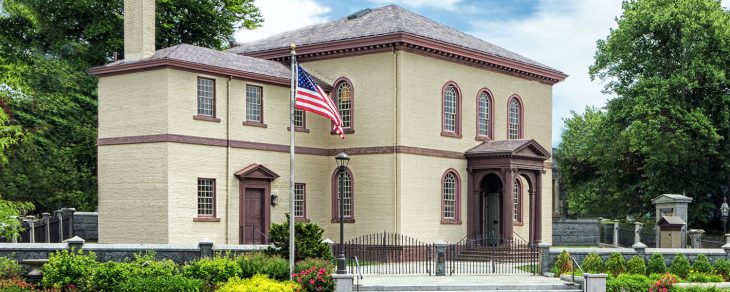
Word of the Day: Gloaming
Today’s Word of the Day, courtesy of Webster’s, is gloaming. Gloaming is a noun that means twilight or dusk. Webster’s describes it as a literary term referring to the darker part of twilight. We can understand why is considered a literary term by looking at the etymology on etymonline.com:
Old English glomung “twilight, the fall of evening,” found but once (glossing Latin crepusculum), and formed (probably on model of æfning “evening”) from glom “twilight,” which is related to glowan “to glow” (hence “glow of sunrise or sunset”), from Proto-Germanic *glo- (see glow (v.)). Fell from currency except in Yorkshire dialect, but preserved in Scotland and reintroduced by Burns and other Scottish writers after 1785.
In addition, etymonline points out the Keats, in the early 18th century, coined a new noun, gloam, in his poem “La Belle sans Merci,” a back-formation of gloaming that revives the Old English word glom:
I saw their starved lips in the gloam,
With horrid warning gapèd wide,
And I awoke and found me here,
On the cold hill’s side.
Many of us were told in school that the colonists who came to the New World from Europe were seeking religious freedom. This was not initially true. The Puritans who settled in New England clearly wanted religious freedom for themselves, freedom from the Church of England, but they were not interested in providing such freedom to others. Roger Williams was one person who experienced the religious persecution of the Puritans; he was exiled from the colony. But he moved a bit south and bought some land from a group of Native Americans, and founded the colony of Providence, which eventually became Rhode Island.
According to the George Washington Institute for Religious Freedom, “Williams proclaimed that everyone had the freedom to worship as they chose. Government would have no control over religion, and religious ministers would have no power to make or enforce laws (we now call this separation of church and state). England’s King Charles II, a Catholic sympathizer in a mostly-Protestant England, approved the colony’s promise of religious freedom by granting it a Royal Charter in 1663. Rhode Island’s Charter, which served as state constitution until 1842, includes this forward looking provision:
No person within the said Colony, at any time hereafter, shall be any wise molested, punished, disquieted, or called in question, for any differences in opinion, in matters of religion, who does not actually disturb the peace of our said Colony; but that all and every person and persons may, from time to time, and at all times hereafter, freely and fully have and enjoy his own and their judgments and consciences, in matters of religious concernments, throughout the tract of land heretofore mentioned, they behaving themselves peaceably and quietly and not using this liberty to licentiousness and profaneness, nor to the civil injury or outward disturbance of others. (https://www.gwirf.org/roger-williams-rhode-island-birthplace-of-religious-freedom/)
One result of this dedication to religious freedom for all was the arrival in the latter 17th century, of Jews. At first there were not many, and they were mostly from Spain and Portugal, but eventually a Jewish community in Newport. Initially they were not granted full citizenship—they couldn’t vote or hold office—but they were at least free from persecution (https://tourosynagogue.org/history/).
By 1758, the Congregation Jeshuat Israel was big enough to warrant the construction of a synagogue. This new synagogue was called the Touro Synagogue, and it was dedicated on this date in 1763. It was the first synagogue in what came to be the United States, and it stands to this day. The synagogue and congregation had its ups and downs through the 19th and early 20th century. But in 1946 it was declared a National Historic Site, an appropriate time since the Jewish community around the world had survived the dark night of the Holocaust.
Today there is, in the USA, a resurgence of anti-Semitism, on the fringes of both the political Left and Right. It is not the dark night of the Holocaust, yet things seem to be working their way to a gloaming for Jews in the USA. But we should all share the wisdom of our first president, who wrote to the Jews of Newport, RI,
May the children of the stock of Abraham who dwell in this land continue to merit and enjoy the good will of the other inhabitants—while everyone shall sit in safety under his own vine and fig tree and there shall be none to make him afraid.
Today’s image is from https://tourosynagogue.org/, depicting the synagogue.